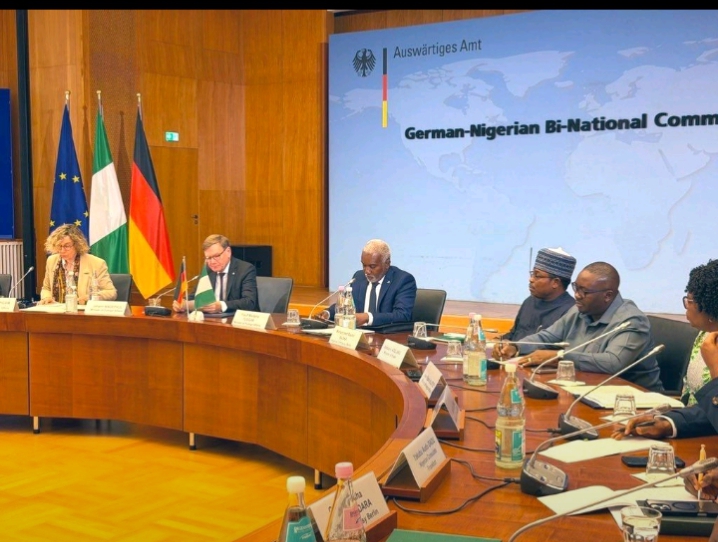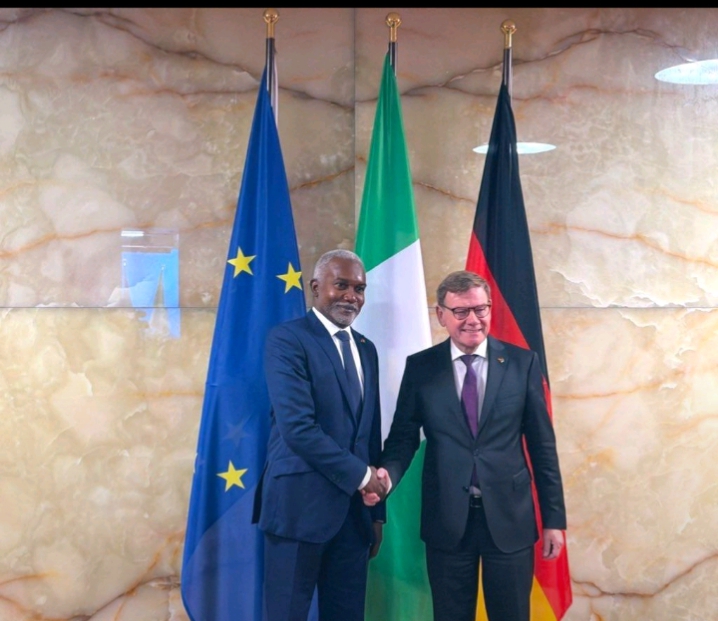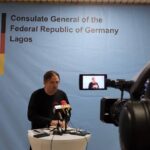Nigeria, Germany Strengthen Cooperation on Power, Security, Trade, and Migration at Bi-National Commission.
By Raymond Enoch
Germany and Nigeria have reaffirmed their long-standing commitment to deepening bilateral relations across multiple sectors — including power, security, trade, migration, and culture — during the session of the Nigeria–Germany Bi-National Commission (BNC), marking 65 years of diplomatic relations between both nations.

The Honourable Minister of Foreign Affairs, Ambassador Yusuf Maitama Tuggar, OON, led the Nigerian delegation to the high-level talks in Berlin, where he met with his German counterpart, Minister Johann Wadephul, and senior officials from both governments to review ongoing cooperation and identify new pathways for mutual growth and development.
Ambassador Tuggar conveyed warm greetings from President Bola Ahmed Tinubu, GCFR, and commended Germany’s enduring partnership in advancing Nigeria’s development priorities. He described the Nigeria–Germany relationship as “a cornerstone of our engagement with Europe and the wider global community,” anchored on innovation, trust, and people-centred development.

The meeting underscored a shared vision to enhance collaboration in key sectors. Discussions focused on the Presidential Power Initiative (PPI) led by Siemens Energy and the Green Guarantee Group (GGG), co-chaired by Nigeria, both aimed at boosting investment in renewable energy and climate-resilient infrastructure. Tuggar reaffirmed that Nigeria’s energy transition “will remain inclusive—leveraging gas as a transition fuel while scaling up renewables.”
On security, both sides pledged to strengthen intelligence sharing, cybersecurity cooperation, and border management through the German Technical Advisory Group (GTAG). Ambassador Tuggar called for “a firmer stance within the EU against proscribed organisations that exploit European jurisdictions for incitement and illicit financing.”
Bilateral trade between Nigeria and Germany reached €3 billion (₦2.95 trillion) in 2024, reinforcing Germany’s position as Nigeria’s second-largest European trading partner. Both nations agreed to diversify cooperation beyond hydrocarbons into ICT, automotive assembly, manufacturing, and agro-industrial exports. Tuggar highlighted that Nigeria’s removal from the Financial Action Task Force (FATF) Grey List has “boosted investor confidence, reduced transaction risks, and signalled renewed credibility in our financial reforms.”
Further discussions also addressed migration and skills development through ongoing initiatives like the Talent Partnerships and SUSTAIN Project. Nigeria proposed expanded collaboration in ICT, engineering, and healthcare, with Tuggar noting that “Business Process Outsourcing offers new opportunities for young Nigerians to service German industries remotely.”
Cultural diplomacy was another key highlight, as Ambassador Tuggar expressed appreciation for Germany’s restitution of the Benin Bronzes, describing cultural cooperation as “a bridge between our peoples and a symbol of shared respect for history and heritage.”
Both Ministers also exchanged views on regional and global issues, including Nigeria’s leadership role within ECOWAS and the Regional Partnership for Democracy (RPD). Tuggar invited Germany to join efforts to strengthen democratic institutions and regional stability across West Africa.
In alignment with President Tinubu’s 4D Doctrine — Democracy, Development, Demography, and Diaspora — the Minister emphasized Nigeria’s reform-driven foreign policy as a vehicle for economic growth, global competitiveness, and stronger multilateral cooperation.
Ambassador Tuggar concluded that the renewed dialogue under the Bi-National Commission “will consolidate mutual trust and elevate our partnership—anchored on equality, shared prosperity, and a common vision for sustainable development.”









